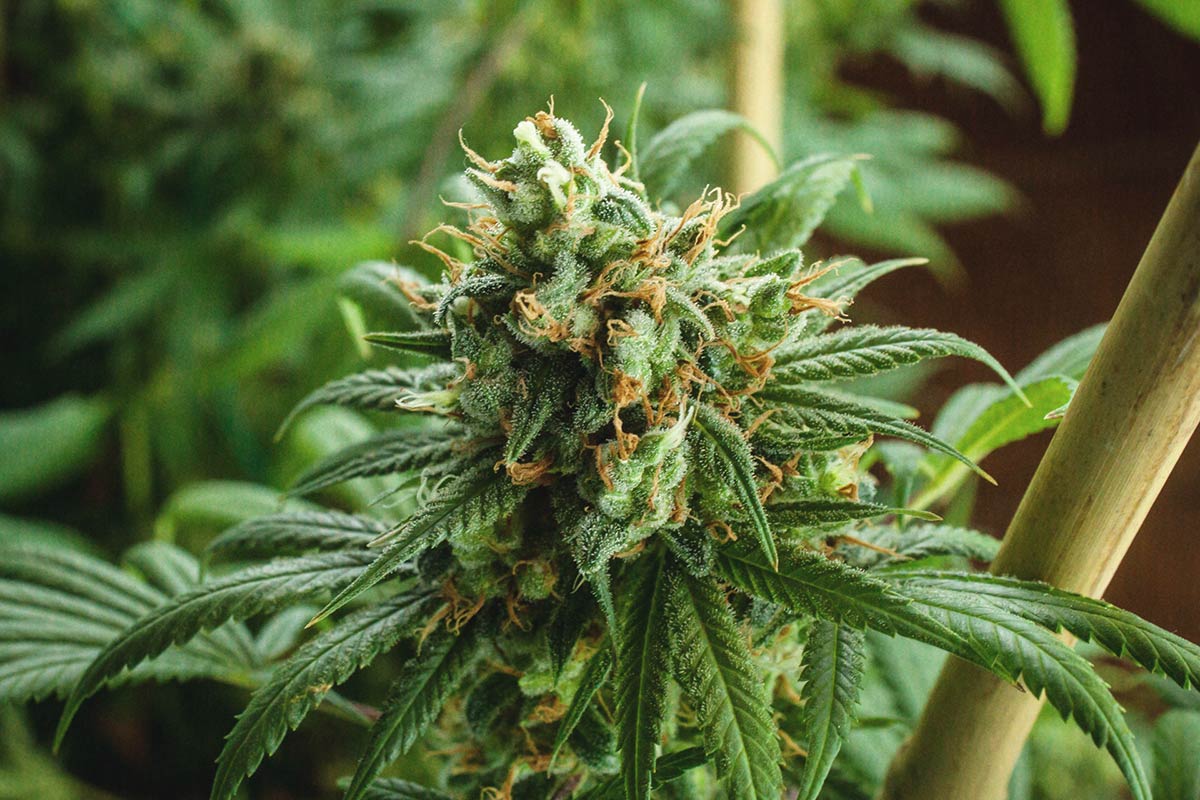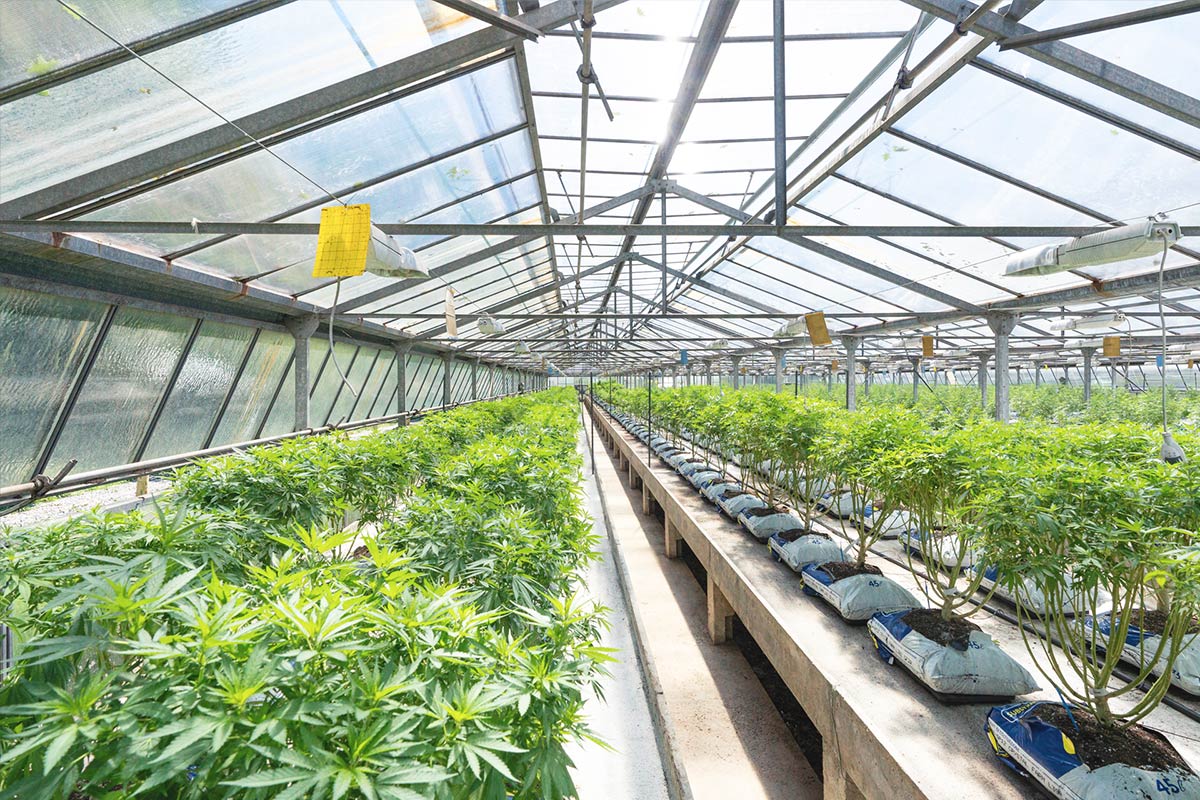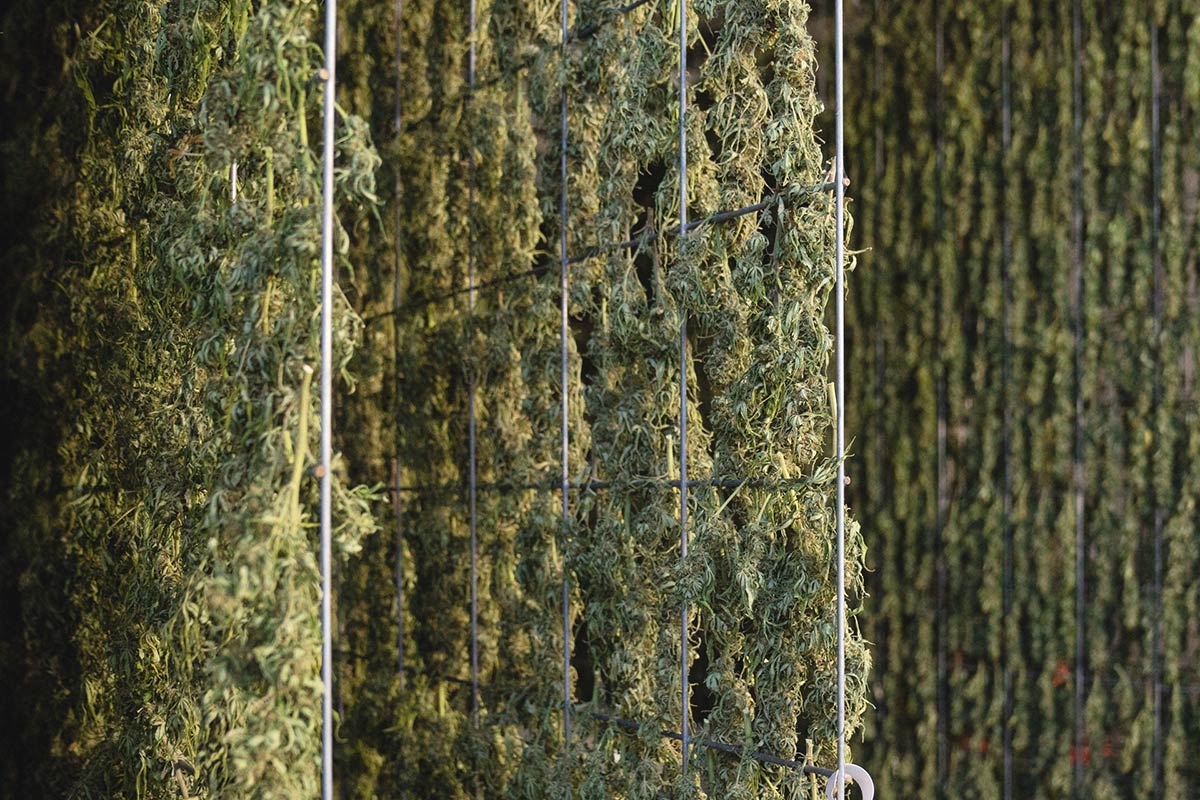Please confirm that you are 21 years of age or older
Please confirm that you are 21 years of age or older
By entering you accept our terms and conditions and our privacy policy.
So, are you new to the cannabis industry and curious about the legality of HHC? During your research have you wondered whether HHC can get you high?, or How legal the use of HHC is in my state?” In this post, we will shed some light on the legality of HHC in general. Some highlights will be provided on which states are legal and which aren’t so that you can make the most informed decision as to whether or not it’s right for you.

As the Cannabis industry grows by leaps and bounds, it seems conventional Delta-9 THC and CBD are no longer quite as satisfying as they once were, leading us to the new upstart in the neighborhood: HHC. Even if you are a seasoned cannabis lover that has tried everything under the sun, it’s still important to ask what’s under HHC’s hood, and if you’re on firm legal ground when experiencing it.
HHC is an acronym for tetrahydrocannabinol, and it is one of the most in-demand cannabinoids in the world of cannabis. It is a hemp-based cannabinoid that occurs in trace amounts. Now due to the small quantities in which it is found, it must be synthesized in the lab through a process called hydrogenation in order to be made safe for commercial use.
Due to its relatively new nature, the legal boundaries concerning its use are blurred in many parts of the country, and lawmakers in many cases are not yet even aware of its availability, leaving huge gray areas, with unclear laws and a sense of worry for many burgeoning HHC users.
Details >
Due to the effects of HHC, it is normal to inquire as to its natural or synthetic nature. You might be tempted to think that no natural substance would give you this rich mix of experiences. But to answer your question, HHC is considered both a natural and semi-synthetic cannabinoid, all depending on where it is sourced.
As mentioned earlier, considerable amounts of HHC are made available for commercial use through hydrogenation. HHC occurs in cannabis in small quantities anyway, so this is a great way out if you ask me. The hydrogenation process alters THC’s natural molecular weight, and what we have is now considered semi-synthetic.
The current legal state of Hexahydrocannabinol is complicated. Many states in America do not have stipulated laws for its use. The effects of HHC are super intoxicating, and it is also normal if users are conflicted as to if it is legal or not. When it comes to hemp, you should understand that legal issues are always a problem. This is apart from the fact that different states in the US have other modalities for issues like this.
Its similarity to delta-9 THC does not do much to help; since Delta 9 THC is the only cannabinoid that is prohibited under federal law. Now you see where the problem is now? Delta-9 is a psychoactive compound that gets its users high in whichever way it is consumed. In the form of an edible, through sublingual administration, and even vaping. The real reason is that it is a no-go area legally in some climes.
But when you critically assess the laws surrounding the use of cannabinoids, there is some respite. Since the passage of the 2018 farm bill, there has been an unprecedented growth in the world of cannabis. Alternatives to THC and CBD also keep appearing, so it is only logical the appearance of HHC amongst all the new options, despite its effects and similarity to delta-9 THC, is excused.
HHC also withstands various extraneous factors such as light, heat, and oxidation better than THC. As we promised earlier, we will be doing a brief highlight of the patterns of legality in as many states in America as possible. We will briefly tell you what the future holds for this seeming newcomer in the cannabis industry.

As we mentioned earlier, the 2018 Farm bill has opened up new frontiers in the cultivation of hemp and its derivatives, even at the federal level. According to this law, all legal cannabis derivatives should contain less than 0.3% THC by dried weight.
And when you come to think of it, HHC products like edibles, disposable vape pens, and vaping carts, all meet this particular requirement. However, since it is America and the laws are not set in stone, and the legislators of any state can decide to make HHC a banned substance anytime, it is right we briefly highlight the legality of HHC by state.
For what it takes, HHC in most states can be considered to be legal; and this is not due to anything other than the fact that most of the states do not have laws expressly covering HHC. Many lawmakers have not heard of it. Take a cursory look through the conditions below to determine if HHC is legal where you live.
In Alabama, all the Tetrahydrocannabinols are banned, safe for those found in hemp itself. HHC is legal here.
Here, the story is different. HHC is illegal, and this is because the Alaskan legislature does not specifically highlight the difference between THC compounds derived from hemp and those from Marijuana. HHC might be unlawful here because it came from neither hemp nor marijuana.
The story is also the same in Arizona, and this is because Arizona specifically prohibits the use of any psychoactive substances derived from the cannabis plant.
HHC is legal in these two states, and this is because substances or materials derived from the hemp plant are permitted in these two states. However, Connecticut expressly states that it should only be sold through the states approved sales network.
Here, Hemp-derived ingredients are not included in the regulations that involve cannabis extracts. This means HHC is legal here.
In these two states, modifications of natural cannabinoid compounds are prohibited. This is regardless of whether they are found in hemp or not. Specifically, in Delaware, any psychoactive compound found in the cannabis plant is banned.
Hemp-derived ingredients are not prohibited in these two states, so HHC is fully legal here. There is no indication of any form of illegality in these two states.
Legislation in these two states shows that there are no special indications to show if HHC is legal or not. Nothing was explicitly mentioned in the core legislature of these states that shows that the use or sale of HHC is illegal. This is also true of Illinois
In Indiana, the levels of THC are strictly controlled, but as long as it does not exceed the 0.3% legal constituent level, then you are good. If the extract is derived from hemp directly, it is also considered legal. This rule is also the same in Iowa, but there are currently indications that Iowa plans to add HHC to the list of banned substances in the future.
HHC is legal in the states above. In Kansas, for example, all tetrahydrocannabinol is banned, with the only exception being substances derived from hemp. Louisiana also bans THC; but although the state has harsh drug laws, there are currently no indications of the illegality of HHC. This is the same case in the state of Maine.
In Maryland, any psychoactive substance is considered illegal irrespective of whether it is derived from hemp. In Massachusetts, the state’s legislature recently added delta 8 to its list of banned substances. HHC is not on the list yet, but industry experts expect it to be added. Michigan is also not relaxing its laws in any way. All the forms of THC are illegal, irrespective of the source.
In these three states, HHC is legal. Missouri also prohibits the hemp-derived extracts that exceed the 0.3% constituent level, but there are currently talks to increase the limit to 1%. All of these facts are also true for Montana and Mississippi.
HHC is legal in Nebraska, Nevada, and New Hampshire and legislation in these three states is in progress to clarify the legality of hemp-derived psychoactive compounds. This is also the same situation in North Carolina, North Dakota, and New Jersey.
Here, the use of HHC is banned. The state recently banned delta-8 and delta-10 THC, and there is also no mention of HHC in the state’s legislature, but with the antecedents, you can be sure HHC will be banned real soon.
HHC is legal in all of these states, but in Ohio HHC must be registered. In the three states, the use of hemp-derived extracts is permitted. Oregon is seen as one of the friendliest states to Cannabis after having allowed the use of cannabis for medical and recreational purposes.
Rhode Island? Yes.
This is after the state prohibited one of the major processes of extracting HHC.
In Pennsylvania, South Carolina, South Dakota, Tennessee, Texas, Virginia, Washington, West Virginia, Wisconsin, and Wyoming, there are no legal implications for using, producing, or selling HHC.

These two federal agencies have not commented specifically on the use of HHC. However, generally speaking, neither of these agencies approves the use of THC-derived drugs for medical use. That said, The FDA has mentioned that it is currently conducting investigations into therapies and derivatives of Cannabis.
If you take a cursory look through all the states we briefly highlighted, you’ll notice that most states do not have definite laws surrounding the use or the sale of hemp-derived HHC. This ultimately translates to HHC remaining legal.
The reason for this is pretty straightforward: HHC has not been around long enough for core laws to be drafted against it. While the legal status of HHC in particular is currently vague in many states, it is important to be responsible and stay updated on new or pending legislation around HHC use. After all, you do not want to be caught with it in an area where HHC possession has been banned.
Also, you may like to read more about HHC vs Delta 8 >

Disclaimer: We work diligently to make sure all product information on our website is correct. The actual product packaging and materials may contain different information than what’s listed on our website. Please make sure to read labels, warnings, and directions on the packaging itself before using or consuming a product. If you have any questions about a product, please contact customer service. Content on this site is for reference purposes only and isn’t intended to replace advice from a physician, pharmacist, or other licensed health-care professional.
Inheal products are made with uniquely sourced, naturally occurring cannabinoids from hemp which is grown in the US.
Statements on this site related to inheal products have not been evaluated by the FDA. This website is not intended to diagnose, treat, cure or prevent any disease. Results from using these products may vary.
In December 2018, the 2018 Farm Bill became law by removing hemp from the federal list of controlled substances and classifying it as an agricultural commodity. All inheal products are meant for adults only.
California Prop 65 Warning
This product contains a chemical (delta-9 tetrahydrocannabinol) known to the state of California to cause birth defects or other reproductive harm. For more information, go to www.p65warnings.ca.gov